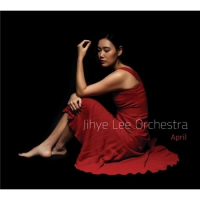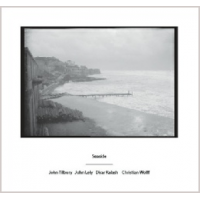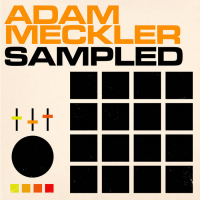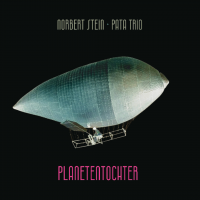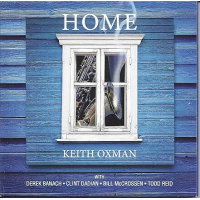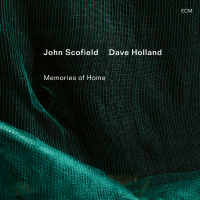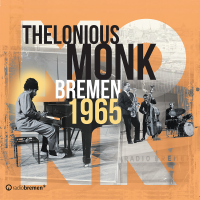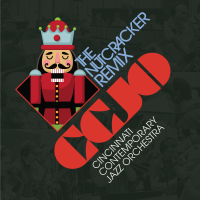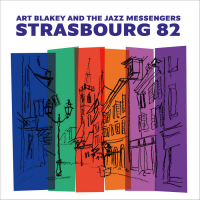Home » Jazz Articles » Album Review » Jihye Lee Orchestra: April
Jihye Lee Orchestra: April
On that fateful day, Lee was nearly seven thousand miles away from her homeland, studying at the Berklee College of Music in Boston. As news of the Sewol made its way across the globe and into her consciousness, a wide mixture of emotions surfaced—sadness, helplessness, anger, heartbreak, and many others, no doubt, that defy language. In the end, she managed to channel them all into this stunning six-part suite. It's a musical triumph born of an unspeakable tragedy, thought-provoking and gut-wrenching all at once. The music sings, sobs, and soars in its unfolding, leaving the listener with a carefully-crafted reflection on the event(s) and a glimpse into Lee's emotional core.
Two of the six pieces—"April Wind" and "Deep Blue Sea"—were written before the Sewol disaster, almost foretelling what was to take place through name and disposition. Lee extended the design of both in the wake of that calamity. Each allows for the composer's hypnotic wordless vocals to glide over the orchestra, but they're very different pieces. "April Wind" covers the whole color, sound, and emotional spectrum(s). Muted voices, high-flying horns, peaceful gestures, and tense episodes all come into play. Soloists have their moments—Alain Mallet's piano work is absorbing, drummer Mark Walker heightens the drama when he plays against the band, a saxophone takes to the sky—but the writing remains the star. "Deep Blue Sea" doesn't cover as much musical ground, but it leaves a firmer impression on the brain. It's an aquamarine jewel, peaceful and passionate in design.
The four other numbers in the suite were all born in the wake of the aforementioned event. "Sewol Ho" opens with a foreboding feeling, as muted brass and flute weave together with others to create a tapestry of danger. That lurking sense of peril plays throughout the piece—as the song builds up, as trumpet and trombone tussle in a stormy sea, as phrases are sharply punctuated, as consonance and dissonance collide—and it comes to serve as an essential musical reminder of what took place. "Whirlwind" deals with the personal and political residuum from the Sewol, using rhythmic motion as a way to capture the swirling of emotions and thoughts that immediately came about after the fact. "Guilty" points toward those who bear the weight of responsibility for this tragedy. A simple ostinato bookending the song comes off like a tolling of the bells, the horns are used to create and frame ominous thoughts, and Bruce Bartlett's guitar and Rick DiMuzio's soprano engage in a pas de deux. The message of the song is clear as day, felt in every note and gesture.
The finale—"You Are Here (Every Time I Think Of You)"—is a musical condolence card to all whose lives were forever changed and damaged by the Sewol incident. It features Sean Jones' masterful and meaningful flugelhorn work in a gorgeously-designed setting. Nobody would've blamed Lee if she had chosen to end things on a sour note or with an unresolved design, but she went the other way, taking and giving sympathy, peace, and perspective in the place of horror. It's a beautiful parting gift on an album filled with powerful music. April is simply unforgettable.
Track Listing
April Wind; Sewol Ho; Deep Blue Sea; Whirlwind; Guilty; You Are Here (Every Time I Think of You).
Personnel
Jihye Lee: vocals; Sean Jones: flugelhorn; Elzbieta Brandys: flute; Shannon LeClaire: alto saxophone, clarinet, flute; Allan Chase: alto saxophone, soprano saxophone; Rick DiMuzio: tenor saxophone, soprano saxophone; clarinet; Bob Patton: tenor saxophone, clarinet; Ben Whiting: baritone saxophone, bass clarinet; Bijon Watson: trumpet; Jeff Claasen: trumpet; Rich Given: trumpet; Greg Hopkins: trumpet; Jeff Galindo: trombone; Rick Stepton: trombone; Artie Montanaro: trombone; Peter Cirelli: bass trombone; Bruce Bartlett: guitar; Alain Mallet: piano; Jiri Nedoma: piano (2); John Lockwood: bass; Mark Walker: drums; Ricardo Monzon: percussion.
Album information
Title: April | Year Released: 2017 | Record Label: Self Produced
Tags
PREVIOUS / NEXT
Support All About Jazz
 All About Jazz has been a pillar of jazz since 1995, championing it as an art form and, more importantly, supporting the musicians who make it. Our enduring commitment has made "AAJ" one of the most culturally important websites of its kind, read by hundreds of thousands of fans, musicians and industry figures every month.
All About Jazz has been a pillar of jazz since 1995, championing it as an art form and, more importantly, supporting the musicians who make it. Our enduring commitment has made "AAJ" one of the most culturally important websites of its kind, read by hundreds of thousands of fans, musicians and industry figures every month.


